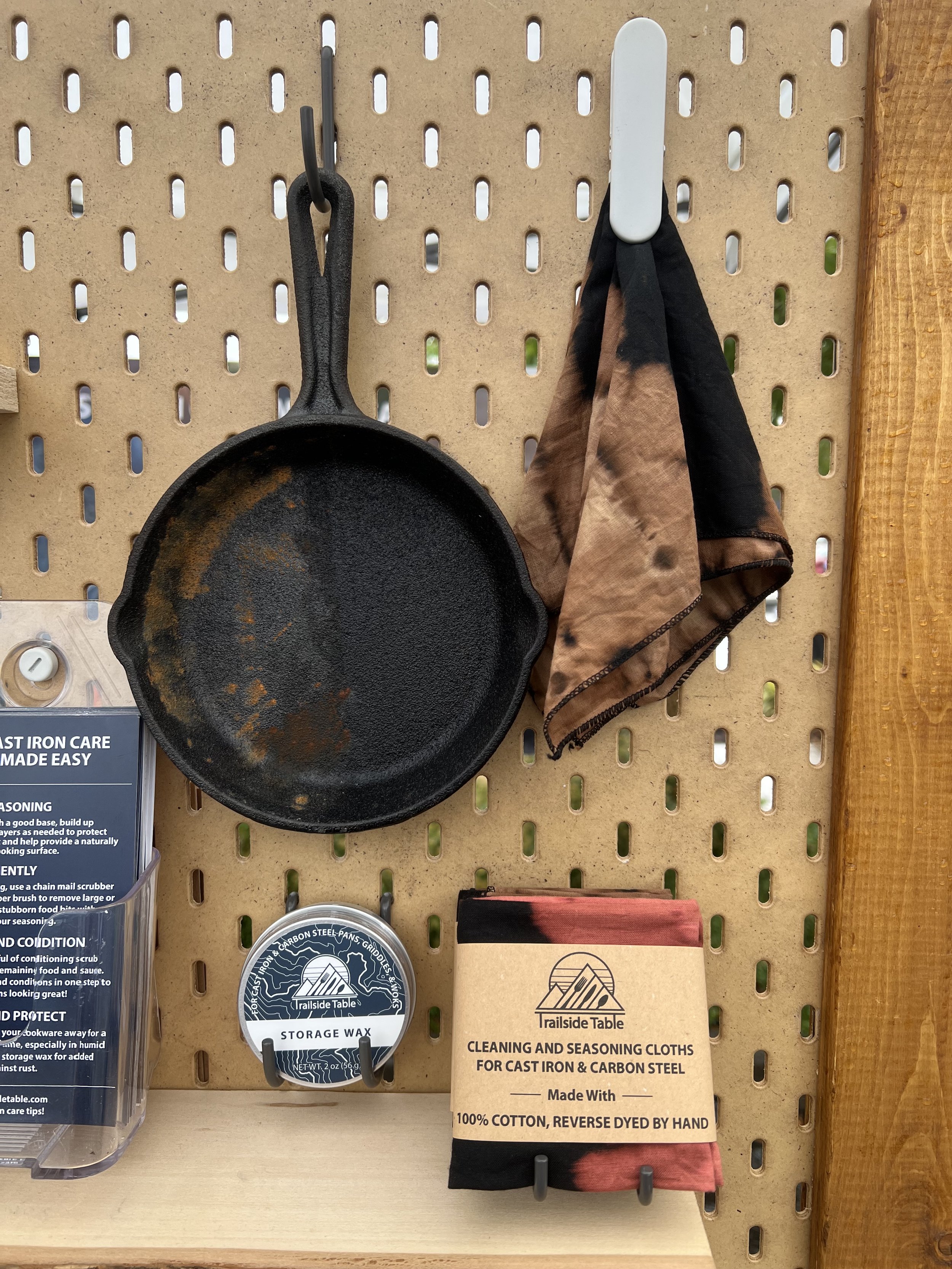What is Cast Iron Seasoning?
Usually when you're talking about seasoning in cooking you're referring to the amount of salt you're adding to bring out flavor of the food. However, when you're talking about seasoning cast iron it's a totally different thing.
The seasoning on cast iron is the layer of polymerized, or baked on, oil that adheres to the pan's surface. The seasoning has two purposes: to protect the underlying cast iron from rust and to provide a natural non-stick cooking surface. The more layers of seasoning on a surface, then more non-stick the surface becomes.
How is Seasoning Applied?
Many of the cast iron items that you can purchase new today come pre-seasoned in order to protect the item from rust as it waits on the shelf for you to bring it home. What this means is that one or more layers of oil have already been baked on to the entire item, inside and out. The oil used varies between manufacturers, but the process is generally the same.
To apply seasoning at home, you add oil, or an oil and wax combination in very thin layers using a low-lint cloth, slowly baking on each layer using your home oven. The baking temperature depends on the oil used. It's important to know the smoke point of the oil that you are using to get the best result. The oil should be baked on for around an hour at a temperature just below the smoke point of the oil being used. This is the point where the seasoning adheres best to the pan surface without being completely burned off. There will still likely be some smoke, so good ventilation is very important.
What Type of Oil is Best for Seasoning Cast Iron?
This can be a really contentious topic. Many people have very strong feelings about the best oil (or fat) for seasoning cast iron. If you have something that works well for you...great! Keep doing what you're doing. If this is your first time seasoning (or re-seasoning) cast iron I'll do my best to share with you the oils that I like to use and why. Things are going to get really nerdy here for a minute, so just skip to the end if you don't care about the why.
Let's re-visit what cast iron seasoning is. It's a layer of polymerized oil that has bonded to the iron surface. The best oils to use are those that have lots of polyunsaturated fatty acids and a high smoke point (higher than the temperature you tend to cook at). Ok, now to break that statement down.
You may have heard that unsaturated fats are better for your health, but that's not specifically why we want to use them for seasoning cast iron. When we refer to a fat (or fatty acid) being unsaturated, we're talking about the chemical structure. A fatty acid contains (among other things) a chain of carbon atoms with hydrogen atoms along the length of the chain. If the carbon-carbon bonds are single, the chain is saturated. If one ore more of the bonds are double, the chain is unsaturated. This results in more kinks and bends in the chain, and affects how the fat interacts with other molecules. In general, unsaturated fats have more opportunities to bond with the iron and carbon that make up your cast iron skillet.
When seasoning cast iron, the thin layer of oil is heated and two processes take place:
Polymerization: The heat causes to the oil to break down and its molecules to react with the iron's surface. This results in the formation of polymers—larger molecules that bond to the iron and create a solid, non-stick layer.
Carbonization: While the primary reaction is with the iron, there is a secondary process called carbonization. This occurs when some of the oil is breaks down into carbon residues. Carbonization is a secondary process that contributes to the overall effectiveness of the seasoning, and it's what makes the seasoning black.
Over time and with repeated seasoning and cooking, the seasoning layer on the cast iron will continue to improve, becoming more resilient and enhancing its non-stick properties.
When I season cast iron I prefer to use grapeseed oil for its high polyunsaturated fat content and its relatively high smoke point. Our seasoning balm includes grapeseed oil in combination with a plant-based wax to help the oil distribute well and stick to the cast iron cook surface.


